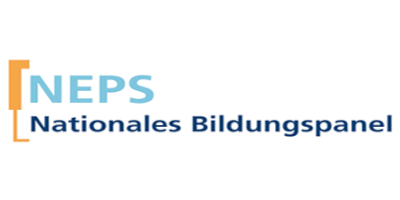NEPS – National Educational Panel Study – Stage 4
The National Education Panel Study analyzes educational processes in Germany. The IFS is responsible for the fourth stage (the transition from lower to upper secondary school) of NEPS.
Funding
Forwarding of grants from the Bavarian State Ministry of Science and the Arts (StMWK) as part of the financing of the project "National Educational Panel Study – NEPS"
Project description

The aim of NEPS is to collect data on long-term educational processes and skills development across the life span in Germany, and to and study changes across the life span and across cohorts. NEPS collects high quality data from representative samples (starting cohorts) of newborns, preschoolers, school children from the 5th and 9th grades, freshmen students and adults. The collected data is processed in a user-friendly design and made available to the scientific public.
The Center for Research on Education and School Development (IFS) is responsible for stage 4 within the NEPS, which is of crucial importance as the link between primary school and upper secondary general or vocational education (or direct entry into the labour market). Since March 2019, the IFS has been playing a leading role in the content and conceptual design of a new secondary school cohort (SC 8). Around 270 schools with 6,200 pupils took part in the first wave of the survey in the first half of the 2022/23 school year. In addition, the following relevant context persons of the pupils took part in a survey: approx. 2,400 parents, approx. 2,600 teachers and approx. 120 school administrators. These participants will continue to be monitored in the coming years. In addition, further schools will be invited to take part in the survey in year 7.
Within the framework of SC8, stage 4 focusses on three main topics: Firstly, by recording civic literacy, the ability of young people to understand political and social issues and problems and to campaign for democracy is surveyed. In the new NEPS study, this key competence as well as individual, family and school-related factors will be recorded in order to gain new insights into this complex topic in the future. The second focus (2) is the survey of well-being at school, which includes social, psychological and physical components. In a third focal point (3), a holistic concept is used to record educational trajectories. In addition to straightforward educational trajectories, the focus is also on trajectories that are characterised, for example, by grade repetitions and changes of school type. Among other things, the NEPS data collected will initially be used to describe how educational trajectories differ between pupils, which determinants lead to different educational trajectories and what effects this has on pupils' educational trajectories.





![[Translate to English:] [Translate to English:]](/storages/ifs-ep/_processed_/8/5/csm_AdobeStock_412860748_9a2dbb816c.jpeg)
